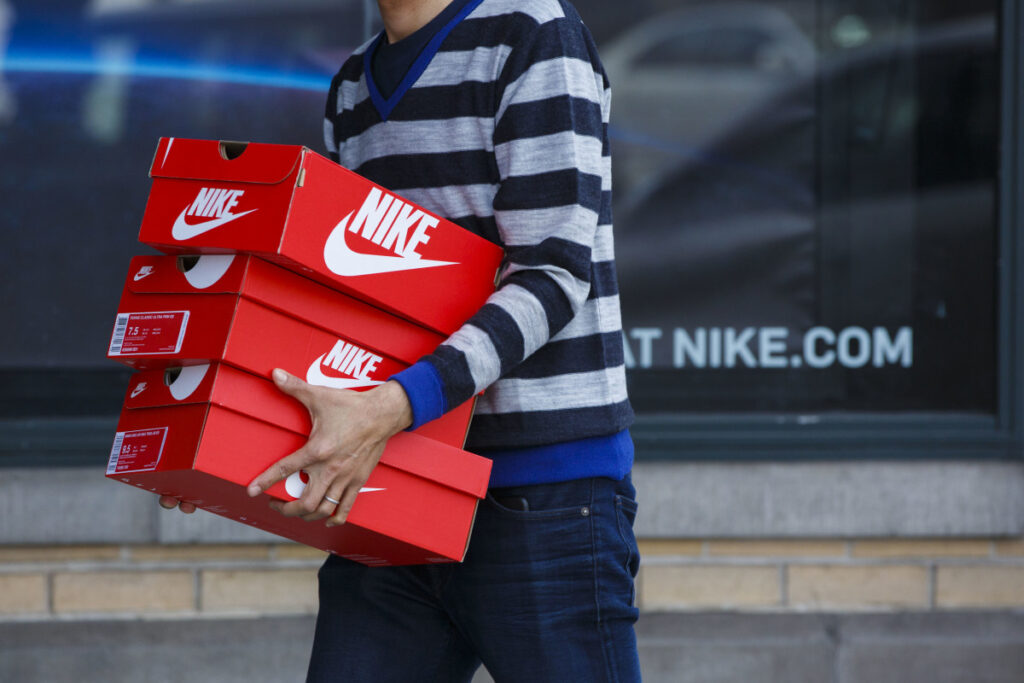Companies, especially retail ones, like to innovate to keep up with industry trends, but Nike’s latest executive board decision seems to contradict this approach.
Although Nike still ranks as the number one sportswear company in the U.S., this year has been tough. The company has experienced declines in the sales department that threaten its position as the top dog.
Related: Retail sales grow, but one issue poses major economic threat
According to Nike’s Q4 earnings report for 2024, quarterly revenues were down 2% compared to the year prior.
Nike is doing everything it can to get back on a positive track, which caused the company to make an unexpected business move that, although desperate, may revive its long-standing reign in the sportswear industry.
Nike kicks itself to the curb by ending strategic relationships
Nike’s (NKE) thirst for more native sales may have caused the company’s own demise.
In the last few years, Nike ended multiple relationships with popular third-party retailers, including DSW (DSW) , Dillard’s (DDS) , and Urban Outfitter (URBN) , by sending little to no product in order to focus on its own direct-to-consumer strategy.
Nike risked severing ties to take an omnichannel approach instead by selling its products exclusively at its own Nike stores, a move the company would regret later on.
After realizing the risky business move didn’t increase profits as expected, Nike is now faced with rebuilding its retail partnership portfolio.
Related: Chubbies leans on tight end to tackle NFL fans
This realization dawned on Nike after competitors, like Hoka and OnRunning (ONON) , proved to be more popular among the sportswear company’s target audience in the running shoe market.
As reported in Nike’s Q4 earnings, footwear sales in North America declined by 2% this year compared to the year prior.
Nike also seems to have lost its top place in the lifestyle department as competitors like Adidas (ADDDF) and New Balance won over its lifestyle clientele.
Apparel sales for this fiscal year’s Q4 reported no growth in the North American market compared to last year.
Nike’s remaining and reestablished wholesalers reported revenue growth of 5% to the year prior, with direct revenues declining 8%, reaffirming the company’s wrong omnichannel move.
Nike runs back to former exec in an attempt to regain its throne
After multiple wrong business moves and unexpected sales declines, Nike had to suck up its pride and run back to a familiar ex.
Elliott Hill started as an intern at Nike and climbed the corporate ladder for 32 years, ending his career with the company after retiring in 2020 from his 2-year-long position as Nike’s President-Consumer and Marketplace.
Nearly four years into his life as a retiree, Hill received an unexpected call from Nike asking him to return as the company’s newest CEO.
However, rehiring a retired executive may completely contradict Nike’s business strategy aimed at innovation.
Nike wants to scale back on its other franchises, including Air Force 1, Air Jordan, and Dunks, to focus on launching more innovative Nike-brand products, as stated in the company’s Q4 earnings call.
“We are taking our near-term challenges head-on while making continued progress in the areas that matter most to NIKE’s future – serving the athlete through performance innovation, moving at the pace of the consumer, and growing the complete marketplace,” said Nike’s former President & CEO John Donahoe.
Additionally, Nike wants to win back market share and reestablish its ties with retailers, so the company chose to rehire Hill as its new CEO.
Expectations do not seem favorable for Nike, and the company agrees
S&P Global predicts that sales will decline nearly 5% in fiscal 2025.
However, S&P Global says, “Nike’s credit metrics remain strong with leverage under 1x, giving it some runway to execute its new strategy.”
More Retail:
- Popular dairy giant offers to buy American rival amid family feud
- FTC trial against $8.5 billion U.S. luxury merger heats up
Nike doesn’t seem as confident in its immediate future, as it lowered its outlook expectations for Q1 of 2025.
According to its Q4 earnings call, Nike expects revenues to decline by 10%.
Nonetheless, the company increased its SQ&A (non-production expenses) by mid-single digits to invest in its innovation strategy and reduce inventory for its franchises.
Related: Veteran fund manager sees world of pain coming for stocks
